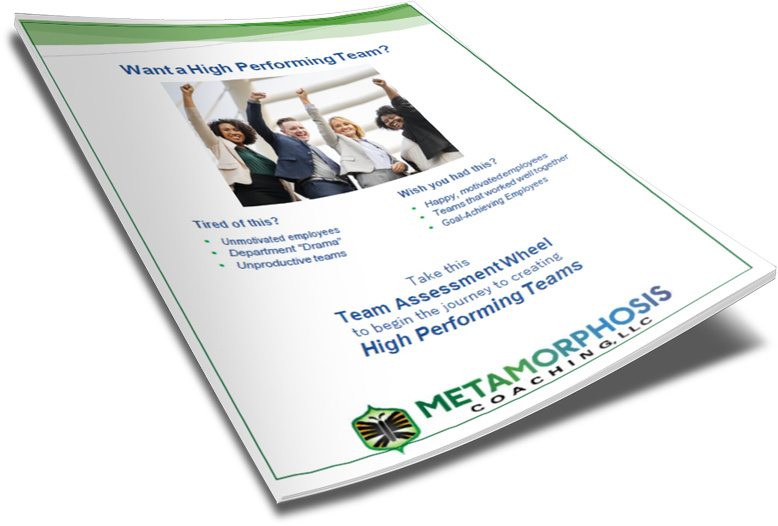Blog - When Will the Other Shoe Drop? The Impact of Worry
When Will the Other Shoe Drop?
The Impact of Worry
by Doni Landefeld, Ph.D.
Advanced Certified Personal and Executive Coach
Certified Positive Intelligence Coach
EQ-i 2.0 and EQ360 Certified
April 2022

When accessed from the sage, thrive part of our brain where the highest level of executive function resides, those with a strong Hyper-vigilant are the guardians of families, communities and institutions. They are loyal, reliable, dependable and hardworking. They are also sensitive and aware of risks and dangers to themselves, others and institutions. There are more positive qualities when this quality is truly a balanced strength instead of a saboteur. And yet there is a huge difference between vigilance and being Hyper-vigilant.
If you remember the story of Chicken Little, the poor character was on overdrive and consumed by constant worry that the sky was falling. The Hyper-vigilant is consumed by continuous, intense anxiety about things that could go wrong. It's an eternal vigilance that never rests. And it's exhausting and dangerous to the point that it can prevent you from seeing real, true threats or dangers.
Maybe you or someone you know is:
- Always anxious and doubts themselves or others
- Has an extraordinary sensitivity to danger signals
- Constantly expecting mishap or danger
- Suspicious of what others are up to and believes that people frequently mess up
- In constant need to seek reassurance, safety, or guidance in procedures, rules, authorities, or institutions
Many moons ago, in the mid-'90s, I worked with someone who over-anticipated, worried and frequently tried to waste my time by sharing her concerns. Needless to say - I couldn't stand being around this person! She was a drain. She was a mood-killer and frankly, someone I consider to be a toxic individual! The gift from this experience is the wealth of information I learned about ways to not interact with others and I swore from that time that I would always go to lengths to build up others and espouse an optimistic attitude as a leader.
The lie of the Hyper-vigilant is that life is full of dangers and if I don't look out for them, who will? This drives individuals with a strong Hyper-vigilant to be cynical, anxious, fearful of making mistakes, and untrusting of others.
And isn't it utterly exhausting to live this way, in constant worry of when the other shoe will drop? By worrying about everything that could possibly go wrong, there is a greater opportunity to miss true threats. Effectiveness is diluted. There is a ton of energy that is expended that could be put to much better use. And so...
- performance and productivity suffers
- others avoid the Hyper-vigilant because the intensity of the energy drains them
- Hyper-vigilant lose credibility from the constant "crying wolf" or "sky is falling" phenomenon
- the hyper-vigilant burns out
Tom Hanks a few years ago, said something along the lines of "why worry? By doing so, we potentially put ourselves through a difficult situation twice." And isn't this essentially a form of self-torture? And of course, the impact on others is draining and it's truly miserable to be around someone who is so cynical, untrusting, and suspicious.
So how do we tame the Hyper-vigilant?
1. Expose the lie. Sadly, we want to be "right" so much of the time that it can take great resolve and facilitated accountability to dial down the lie that safety and security can not be found by controlling external circumstances. Like happiness, vigilance is an inside game. Mindset!
2. Build up your self-command muscle by focusing on one physical sensation. Use these power breaks to disrupt and distract. This is all neuroscience and positive psychology in action!
3. Contemplate what gift or opportunity you may instead harness by building up either knowledge, a specific skill, or inspiration. What can you learn NOT to do from an annoying Hyper-vigilant? Maybe it's also an opportunity to develop greater empathy, patience, and compassion.
4. Finally, create 80-20 buckets. Buckets help to organize and strategize! Understand and practice that 20% of risks are worthy of a 'Sage Vigilance' while 80% of everything else doesn't deserve the attention. Because even if something goes wrong, you'll be just fine!
If you'd benefit from accountability and more ideas, let's connect! Click the button below to schedule your complimentary strategy session and come to the call with a challenge or opportunity!
Or if you'd like to see if you have a strong Hyper-vigilant saboteur, CLICK HERE to receive a link to the free PQ assessment where you'll learn about your saboteurs and how you might be overusing your strengths.


